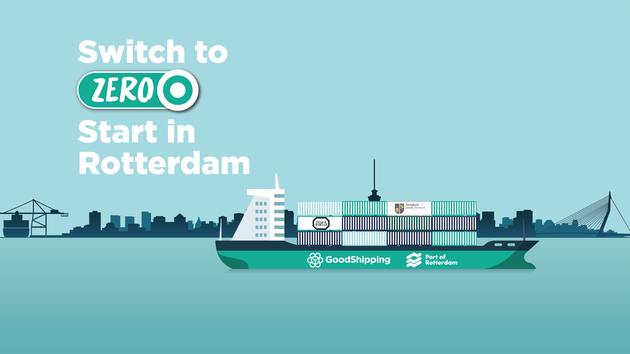GoodShipping and Port of Rotterdam Authority have launched ‘Switch to Zero’ campaign to find some twenty sea freight shippers who will decide to participate in a new green fuel option.
The aim of the campaign is to inform companies of a new ‘insetting’ concept so they can have part, or all of their sea freight transported via sustainable fuel.
Insetting does not involve achieving carbon reductions through compensation but through shipping using sustainable fuel.
Shippers often transport small numbers of containers on different vessels and can use insetting to purchase a certain amount of carbon reduction via GoodShipping, which ensures that this is achieved by providing a vessel with sustainable fuel, said a statement of the two parties.
This does not need to be the same vessel on which the containers are transported.
GoodShipping and the Port of Rotterdam Authority aim to find some twenty new sea freight shipping companies that wish to use this service. The aim is for joint vessel bunkering with these shippers to reduce the amount of carbon released into the atmosphere by 2023 tonnes. This is comparable to the amount of carbon released when transporting some 15,000 TEU containers between Rotterdam in the Netwerlands and Gothenburg in Sweden.
Swinkels Family Brewers, known for brands including Bavaria and Cornet, and Dille & Kamille are the first companies that have confirmed their participation in the project. They will have some or all of their containers shipped using sustainable fuel next year, according to the announcement.
Dirk Kronemeijer, CEO of GoodShipping, commented, “We’ve seen a huge acceleration in the pace of the energy transition brought about by shippers over the past two years, which is why we want to give more companies the opportunity to have their freight shipped sustainably.”
He added, “The Port of Rotterdam Authority aims to be the world’s most sustainable port and it was an obvious choice for GoodShipping to support that. With the Switch to Zero campaign, we’re making it easy for companies to enhance the sustainability of their transport without complex supply chain adaptations.”







